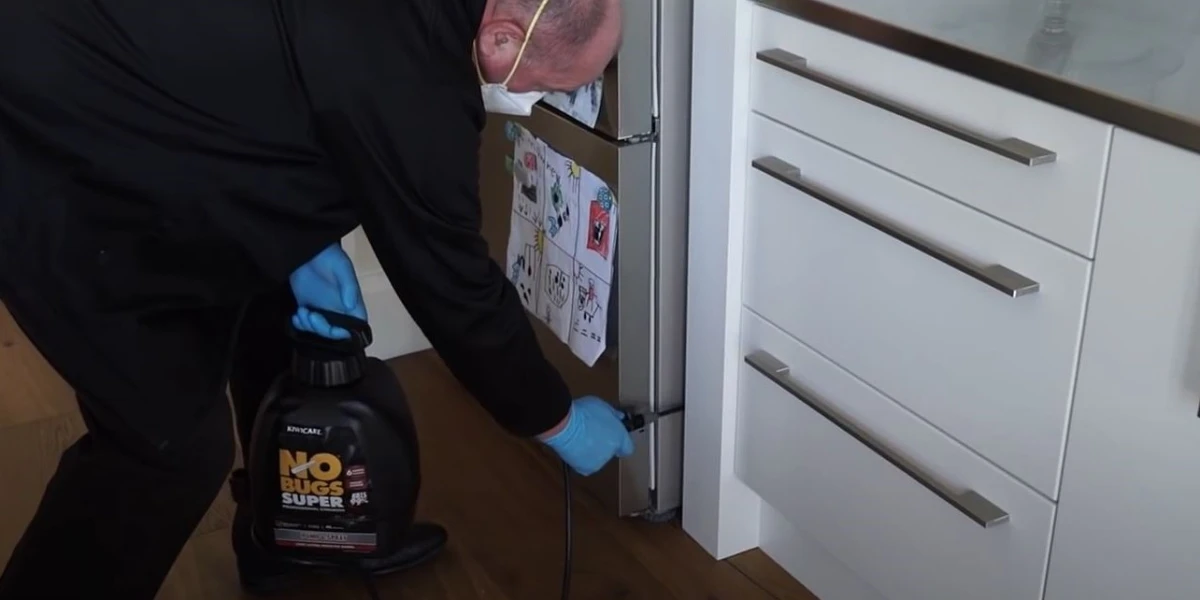Spring Fly and Spider Treatment
Early spring is a great time to carry out your annual fly and spider treatment to protect your family and home from flies, spiders and other crawling and flying pests. Surface spray insecticides such as NO Bugs Super, Ripcord Plus and NO Spider Total Protection, should applied on exterior and interior surfaces where pests crawl or land. Eaves, downpipes, sunny walls, around doors and windows, the base of walls and around vents should be treated. This will get rid of unsightly cobwebs and act as a barrier to insects and other pests that might try and get into your house. Such treatment will greatly reduce the number of pests that would annoy you though the warmer months. A second treatment may be necessary in summer.
Surface spray insecticides are usually what are known as residual insecticides; that is the insecticide remains active and lethal to insects for up to 6 months. Most are synthetic pyrethroids. Pyrethrum is a natural product extracted from the flowers of chrysanthemums. Synthetic versions of pyrethrum are made more stable and long lasting and are known as pyrethroids.
Surface sprays only affect insects when the insect makes contact with the treated surfaces or if the insect is sprayed directly. This is great for controlling crawling insects both adult and larval. Flies and other flying insects are also controlled because they will land on the treated surfaces. The long lasting effect of residual insecticides means that a treatment can be carried out once and may not need repeated for a whole season. Because the insecticide is limited to the treated surfaces there is no insecticide in the air for people, pets or others to inhale.
How to Use Residual Surface Insecticides
- Think about the pest/s you want to control. Where do they live and what surfaces do they contact? Check out the problem solver for information on the pest/s you want to control.
- If the surfaces to be treated are dirty or greasy clean them with mild detergent and leave to dry thoroughly.
- If you are using your own sprayer make sure it is thoroughly cleaned and rinsed with clean water before use.
- When using a concentrate measure the correct amount of product carefully and mix with clean water to the correct dilution. How to mix spray concentrates.
- Clear away all foods, food utensils and cover any surfaces that food may contact.
- Remove all people and pets from the area. Remove or cover fish tanks and ponds. Remove or cover toys and bedding or any other items that are regularly contacted.
- For exterior spraying choose a still dry day when rain is not imminent.
- Exterior spraying can be useful barrier to the entry of insect pests such as ants, cockroaches, slaters, flies and spiders.
- Wear overalls, particle mask, gloves, cap and eye protection when spraying.
- For crawling insects, pull furniture away from walls so that you have access to skirting and the base of walls.
- Using a fine spray and a steady motion spray the surfaces to give an even coverage. Do not over spray; the spray should not run.
- Porous surfaces are likely to need a second coat.
- If the spray beads on the surface let it dry and then give a second spray. Two light sprays is better than one heavy spray.
- When spraying around windows avoid over spraying on the glass. It is easier to clean spray off windows before it is dried. A sponge can be a useful way to applying spray solution to window frames and sills without getting product on the glass.
- Leave the area to ventilate and let the spray dry thoroughly.
- Wipe down any food preparation surfaces that might have had spray contact it.
- Synthetic pyrethroid insecticides take minutes to hours to kill insects so don't expect insects to drop dead immediately they contact the treated surfaces.
You should now have good long term control of many insect pests. The length of time the spray will remain active is governed by the exposure to UV light, rain, grease and dirt accumulating on the surfaces and how often the surfaces are cleaned down.
David Brittain
Kiwicare
